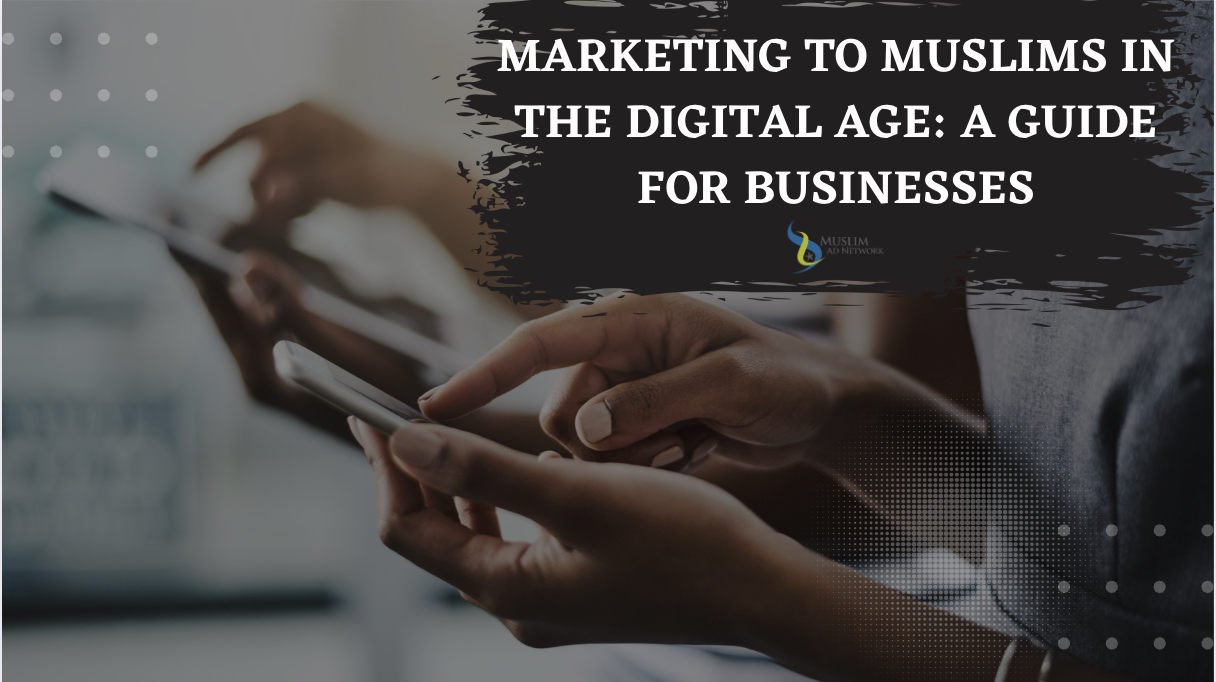
Key Takeaways:
- Understanding the Power of the Market: Muslims form a large and economically influential demographic, with a global economic impact projected at $3.2 trillion by 2024. Businesses that wish to stay relevant and expand their reach must consider the Muslim audience as a critical part of their marketing strategy.
- Culturally Aligned Content is Essential: Brands that resonate with Muslim consumers are those that respect Islamic values, avoid stereotypes, and tailor their content to align with religious practices and beliefs. Marketing around significant dates like Ramadan and Eid, as well as partnering with Muslim influencers, can boost credibility and engagement.
- Mobile and Social Media are Vital Channels: Digital engagement among Muslims, especially younger, tech-savvy generations, is predominantly mobile-centric. Data shows that during key periods such as Ramadan, consumers prefer browsing and interacting via smartphones. Utilizing social media and platforms optimized for mobile can significantly enhance reach and impact.
As a vibrant and rapidly expanding demographic, Muslims represent a significant market opportunity for businesses looking to engage diverse audiences. With over 1.9 billion Muslims globally and a projected economic footprint of approximately $4.9 trillion by 2025 (as reported by the State of the Global Islamic Economy 2022/2023), understanding how to effectively market to this group is crucial. Here’s how brands can connect authentically with Muslim consumers in the digital space.
Why Market to Muslims?
The Muslim market is not just vast in size but also rich in diversity. Pew Research Center estimates that by 2060, Muslims will be one of the largest global demographics, contributing to a collective spending power of approximately $200 billion annually in the U.S. This diverse community encompasses a variety of cultures, languages, and traditions, making it essential for brands to approach marketing with sensitivity and awareness. You can read more about global Muslim demographics in Pew Research’s report on the Future of World Religions here.
Furthermore, many Muslims are part of younger generations who are digital natives. According to the 2019 Islamic Economy Report, the halal economy is projected to grow rapidly, encompassing sectors such as fashion, food, and travel. Businesses that adapt their strategies to meet the expectations of this community are likely to see significant benefits.
Digital Habits of the Muslim Audience
Social Media and Influencer Marketing
Muslims frequently use platforms like Instagram, TikTok, and YouTube to discover new brands and products. Engaging, relevant content during key Islamic events, such as Ramadan, can significantly enhance audience interaction. Brands can leverage this time to create content that reflects Islamic values, celebrations, and community spirit.
For instance, our piece, “Tapping into the Halal Beauty Boom: Strategies for Men’s Grooming Brands”, emphasizes the importance of addressing the specific needs and interests of Muslim consumers during peak seasons like Ramadan. It highlights how brands can utilize influencer marketing effectively to reach this audience, as influencers often have a direct line of communication with their followers, making them key players in the marketing ecosystem.
Mobile-First Approach
With a high smartphone penetration rate in Muslim-majority countries, ensuring your content is mobile-optimized is essential. This demographic frequently accesses the internet via their phones for everything from shopping to socializing. Data suggests that mobile devices account for more than 70% of online activity among Muslim consumers.
Effective strategies for reaching Muslim audiences digitally can be found in our article, “Enhancing Charity Marketing Strategies to Engage the Muslim Audience (Part 2)”. This article explores how charities can benefit from mobile-optimized campaigns, emphasizing the significance of mobile technology in the digital age.
Building Culturally Relevant Content
Respect for Islamic Values
Authenticity, modesty, and community resonate deeply with Muslim consumers. Brands must avoid stereotypes and create culturally sensitive content that reflects the values and beliefs of their audience. The importance of respect for Islamic principles cannot be overstated; brands that fail to adhere to these principles risk alienating potential customers.
Learn more about common pitfalls in our article here. This piece discusses how brands can navigate cultural sensitivity while maintaining a strong marketing strategy, showcasing successful case studies along the way.
Targeted Islamic Dates
Key Islamic celebrations, such as Ramadan and Eid, are excellent opportunities to connect with Muslim consumers. These occasions are not just religious observances; they are also significant commercial events, where many Muslims seek to purchase gifts, food, and clothing.
Seasonal marketing strategies are discussed in detail in “Leveraging AI and Video Marketing Trends to Engage Muslim Consumers”. This article outlines how brands can use technology to create impactful campaigns that align with the Islamic calendar, maximizing engagement and sales.
Halal and Ethical Branding
Ethical brands that adopt halal practices can build trust within the Muslim community. Halal certification is a vital consideration for many consumers, affecting their purchasing decisions across various categories, including food, cosmetics, and pharmaceuticals. Brands that demonstrate a commitment to ethical practices and transparency often find that they resonate more deeply with Muslim consumers.
Explore why ethical branding resonates in our article, highlighting the brands that successfully navigate the halal market and why their commitment to ethics is pivotal in winning over Muslim consumers.
Influencer Partnerships
Collaborating with Muslim influencers who align with Islamic values can enhance brand credibility. Influencers can act as authentic voices within the community, helping to bridge the gap between brands and consumers. Their recommendations often carry significant weight, and partnering with the right influencers can lead to increased brand loyalty.
For insights on leveraging influencer marketing, see our previous blog. This piece delves into how brands can identify and work with influencers who genuinely connect with their audiences, thus maximizing their marketing efforts.
Brand Successes in the Muslim Market
Several brands have successfully captured the Muslim market by understanding their unique needs and values:
- Nike Pro Hijab: By developing the Pro Hijab line, Nike addressed the needs of Muslim women athletes, demonstrating inclusivity and understanding of cultural sensitivities. This innovative product launch reflects Nike’s commitment to diversity and its willingness to cater to the specific needs of Muslim women.
- Crescent Foods: This halal food provider in the U.S. has successfully built a loyal customer base by promoting halal certification and ensuring that their products meet the dietary requirements of Muslims. Their focus on quality and community engagement has established them as a trusted brand within the halal market.
- Modanisa: An online fashion retailer specializing in modest clothing, Modanisa effectively engages customers through targeted digital marketing strategies. By embracing the values of modesty and inclusivity, they have tapped into a growing market of Muslim women seeking fashionable yet modest clothing.
Avoiding Pitfalls
Cultural sensitivity is essential when marketing to Muslims. Brands should avoid generic messaging and recognize the diversity within the community. This demographic includes various ethnicities, traditions, and interpretations of Islam, and a one-size-fits-all approach will not be effective.
For more information, refer to our previous article which explores how brands can tailor their local marketing efforts to better resonate with Muslim consumers, emphasizing the importance of personalization and local relevance.
Using Targeted Digital Channels
While social platforms are vital, specialized advertising networks can yield better results. Muslim Ad Network effectively connects brands with Muslim audiences through targeted digital channels. Our advertising network specializes in delivering ads to Muslim consumers across a variety of platforms, ensuring that your message reaches the right audience.
For further details, check our page for more about our services. Here, you can find resources to help you launch effective campaigns that resonate with Muslim consumers.
Conclusion: Partner with Muslim Ad Network
Marketing to Muslims presents a valuable opportunity for brands to engage with a fast-growing and diverse audience. At Muslim Ad Network, we specialize in culturally sensitive advertising strategies tailored to Muslim consumers. Our team understands the unique needs and preferences of this demographic, helping brands to connect authentically and effectively.
Contact us today to discuss how we can elevate your brand’s outreach in the Muslim market. By leveraging our expertise, you can navigate this vibrant landscape and unlock the potential of marketing to Muslims in the digital age.
